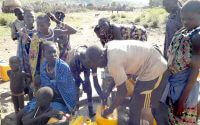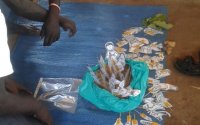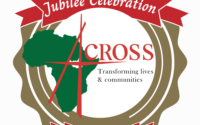Resilient Education for Peace and Development
Situated on the southeast edge of the Greater Pibor Administrative Area (GPAA), Jebel Boma County has borders with Ethiopia on the east and with Kapoeta East County in Eastern Equatoria on the south. Insecurity in the Greater Pibor Administrative Area and the neighboring state of Jonglei has been characterized by retaliatory violence, which includes kidnappings of children, vengeance killings, and raids on cattle. In addition, there are major shortages of necessities in the area, which has caused prices to spike. Furthermore, the effects of climate change are present. In June, the region had heat waves and dry spells, which negatively impacted some maize farms and led to starvation in the County. ACROSS’s cars were also seized by the youth in early May 2024 as a result of their fears, which had a detrimental impact on the project. The children were sent home, and peace-building efforts on the Pine Line were put on hold until mid-May 2024. Nevertheless, in spite of these difficulties, the project achieved significant milestones, which are detailed below.
ACROSS trained 50 local government officials, community, and church leaders in conflict resolution and analysis to improve their communication skills and foster resilience by giving them the tools to effectively handle challenges and setbacks, thereby promoting adaptability, facilitating growth, and enhancing team cohesion. The goal was to increase the adoption of peaceful ways of resolving conflicts and reduce the cases of armed violence in Jebel Boma. In order to further encourage peaceful cooperation among the youth of the three ethnic communities, an annual peace competition was set up.

The peace tournament
A serious humanitarian crisis has struck South Sudan, affecting more than 9.4 million people, five million of whom are children. Entire decades of civil war, political unrest, and interethnic strife have shaken the foundations of long-term peace. The nation is also struggling with the negative effects of climate change, which are manifested in periodic floods and droughts that have a substantial impact on agriculture—along with livestock—being the main source of income. Unhealthy coping mechanisms have emerged as a result of the crisis, including coerced or early marriages and forced school dropouts who then work as children to make ends meet. There is little state funding for fundamental services, which makes it difficult for people to receive important services, especially education. For this reason, ACROSS has started running back-to-school initiatives to boost the number of girls enrolled in education. According to data from the Humanitarian Needs Overview 2023, 2.8 million school-age children are anticipated to be out of school, with even lower rates for girls because of early marriage and family duties.

Education campaign to increase awareness on school enrolment



